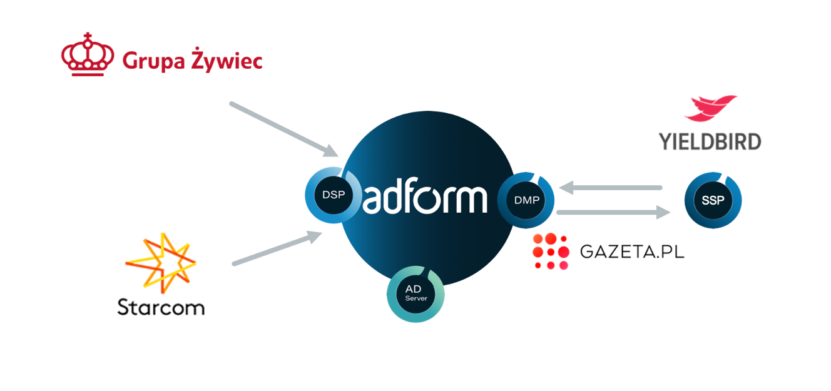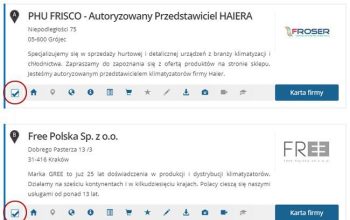Adform, Newspaper.pl, the Zywiec Group, Yieldbird and Starcom with the first effective advertising campaign using the
Supportóliaison Adforma, Gazeta.pl, Zywiec Group, Yieldbird and Starcom, paves the way in creating a solution to a key problem in digital marketing today – browser changes to eliminate cookies 3 rd party. Partners conducted in October 2020. the first in Poland and one of the first in Europe effective campaign using only 1 st party IDs for targeting.
Safari, Firefox and Edge browsers already block 3 rd party cookies, i.e. external advertising identifiers and data from third-party vendorscóIn, not owned by the publisher or customer. Chrome, the world’s most popular browser gradually extinguishes third-party identifiers – Their support will be phased out entirely by 2022. 3 rd party cookie functionality to some extent to be replaced by Google’s proprietary solution’a, but it is unclear if it will be available to everyone. The market without Safari and FF might still be able to cope, but unfortunately, without the Chrome browser, no longer, as its share of page views (desktop + mobile) is 63% * .
What this means in practice?
1. Tools available on the market based on external identifiers will not be able to function in their current form, as they will not have the ability to calculate coverageów, wspóThe current methodology of the. As a result, products billed for reach will receive severely underestimated statistics.
2. Advertisers will receive a limited number of functionalities, which means no capping (imposing a limit on ad impressions per unique user, otherwise – limiting contact with advertising per user), remarkerting (repeatóThis is a cookie for many of the functionalities we use on the web todayóin whichóFor example. not bought the product, but were on the site) or behavioral targeting (targeting based on user behavior, purchase preferences, interests or gender.) in its current form, whichóre allow to very precisely reach a specific group of usersów, thereby saving budget. This will make it very difficult for DMP (Data Management Platform), SSP (Supply Side Platform), DSP (Demand Side Platform) platforms to function. The blocking will be even more severe for the provideróin third-party data, and their profit will drop to practically zero.
3. Publishers and other entities thatóhe advertising revenues are dependent on the use of the identifieróin 3rd party will be most affected by this change. The winners will be those whoóers who can identify the userów and use this knowledge in appropriately tailored next-generation advertising products.
The future is 1 st party
An opportunity to maintain the current targeting capabilities of campaigns and the position of independent publishersów is the use of identifieróin 1 st party ID. These are cookies, whichóre can only be embedded by the owner of the party and is unthreatened by changes – is one of the foundationsów for many of the functionalities we use on the web today. Unlike 3 rd party cookies, 1 st party is proprietary data – depending on the situation, publisher or customer identifiers.
– With its integrated advertising platform, Adform Flow is uniquely positioned to switch from third-party data. Thanks to the unified architecture – including a supply-side platform (SSP), a demand-side platform (DSP), a data management platform (DMP) and an ad server. – Adform has a complete infrastructure for modern marketing, która allows him to rebuild the entire supply and demand path wokół identifierów 1 st party – comments Łukasz Bańkowski, Sales Manager at Adform.
Diagram of the adtech ecosystem using 1st party identifiers
The move to 1 st party data not only provides protection for the future, but already provides the opportunity to run personalized campaigns in fileless environmentsóin 3 rd party cookies such as Firefox and Safari browsers. The 1 st party files also provide an opportunity for greater transparency in the system without the need for hundreds of filesóin 3 rd party, easier compliance with RODO regulations, and in addition, identifiers and 1 st party data last longer than 3 rd party cookies, providing significant data quality benefits for brands.



